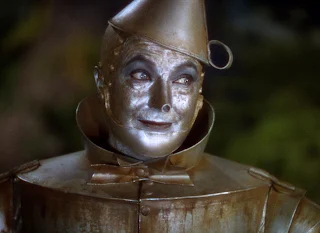William M. Holden
Quotes·Quotations by William M. Holden
Religion·Faith
¶
@ Hell is paved with good samaritans.
Henri Frédéric Amiel (1821-1881)
Henri Frédéric Amiel (1821-1881)
Henri Frédéric Amiel (27 September 1821 – 11 May 1881) was a Swiss philosopher, poet and critic.
Born in Geneva in 1821, he was descended from a Huguenot family driven to Switzerland by the revocation of the Edict of Nantes.
After losing his parents at an early age, Amiel travelled widely, became intimate with the intellectual leaders of Europe, and made a special study of German philosophy in Berlin. In 1849 he was appointed professor of aesthetics at the academy of Geneva, and in 1854 became professor of moral philosophy. These appointments, conferred by the democratic party, deprived him of the support of the aristocratic party, which comprised nearly all the culture of the city.
This isolation inspired the one book by which Amiel is still known, the Journal Intime ("Private Journal"), which, published after his death, obtained a European reputation. It was translated into English by Mary A. Ward at the instigation of Mark Pattison.
Although second-rate as regards productive power, Amiel's mind was of no inferior quality, and his Journal gained a sympathy that the author had failed to obtain in his life. In addition to the Journal, he produced several volumes of poetry and wrote studies on Erasmus, Madame de Stael and other writers. He died in Geneva.
Quotes·Quotation
Hope
Hope is only the love of life.
http://en.wikipedia.org/wiki/Henri_Frédéric_Amiel
Hippocrates (460BC–370BC)
Hippocrates (460BC–370BC)
Hippocrates of Cos or Hippokrates of Kos (Ancient Greek: Ἱπποκράτης; Hippokrátēs; c. 460 BC – c. 370 BC) was an ancient Greek physician of the Age of Pericles (Classical Athens), and is considered one of the most outstanding figures in the history of medicine. He is referred to as the father of Western medicine in recognition of his lasting contributions to the field as the founder of the Hippocratic School of Medicine. This intellectual school revolutionized medicine in ancient Greece, establishing it as a discipline distinct from other fields that it had traditionally been associated with (notably theurgy and philosophy), thus establishing medicine as a profession.
However, the achievements of the writers of the Corpus, the practitioners of Hippocratic medicine, and the actions of Hippocrates himself are often commingled; thus very little is known about what Hippocrates actually thought, wrote, and did. Hippocrates is commonly portrayed as the paragon of the ancient physician, credited with coining the Hippocratic Oath, still relevant and in use today. He is also credited with greatly advancing the systematic study of clinical medicine, summing up the medical knowledge of previous schools, and prescribing practices for physicians through the Hippocratic Corpus and other works.
Quotes·Quotation by Hippocrates
Life
¶ Ὁ βίος βραχύς, ἡ δὲ τέχνη μακρή, ὁ δὲ καιρὸς ὀξύς, ἡ δὲ πεῖρα σφαλερή, ἡ δὲ κρίσις χαλεπή. [Greek]
Life is short, art is long, opportunity fleeting, experiment uncertain, and judgement difficult.
http://en.wikipedia.org/wiki/Hippocrates
Hippolyta (DC Comics)
Hippolyta (DC Comics)
Queen Hippolyta is a fictional character and DC Comics superhero, based on Hippolyta, queen of the Amazons in Greek mythology. She is also the mother of Wonder Woman and Donna Troy.
Quotes·Quotation by Hippolyta
Hero
¶ Go in peace my daughter. And remember that, in a world of ordinary mortals, you are a Wonder Woman. [Wonder Woman]
¶ This is the Golden Lasso. Besides being made from an indestructible material, it also carries with it the power to compel people to tell the truth. Use it well, and with compassion. [played by Cloris Leachman, Wonder Woman]
Paradise
¶ I named it Paradise Island for one reason—there are no men on it!!!
http://en.wikipedia.org/wiki/Hippolyta_(DC_Comics)
Hilary Swank (1974- )
Hilary Swank (1974- )
Hilary Ann Swank (born July 30, 1974) is an American film actress. She has won the Academy Award for Best Actress twice, as Brandon Teena in Boys Don't Cry (1999) and as struggling waitress-turned-boxer Maggie Fitzgerald in Million Dollar Baby (2004). She also put in a notable performance in Insomnia, working alongside Al Pacino. Since 2003, Swank has also worked as an executive producer.
Quotes·Quotation by Hilary Swank
Hilary Swank as Holly from P.S. I Love You (2007)
written by Cecelia Ahern
¶ Something is never nothing. It's always something.
http://en.wikipedia.org/wiki/Hilary_Swank
Hickory/Tin Woodsman (The Wizard of Oz, 1939)
Hickory/Tin Woodsman from The Wizard of Oz (1939)
John Joseph "Jack" Haley (August 10, 1898 – June 6, 1979) was an American stage, radio, and film actor best known for his portrayal of the Tin Man and Kansas farmworker Hickory in The Wizard of Oz.
Quotes·Quotations by Hickory/Tin Woodsman
Jack Haley as Hickory/Tin Woodsman from The Wizard of Oz (1939)
¶ Now I know I've got a heart, 'cause it's breaking...
http://en.wikipedia.org/wiki/Tin_Woodman
North Korea
North Korea
North Korea ( listen), officially the Democratic People's Republic of Korea (DPRK; Chosŏn'gŭl: 조선민주주의인민공화국; Chosŏn Minjujuŭi Inmin Konghwaguk), is a country in East Asia, in the northern part of the Korean Peninsula. The capital and largest city is Pyongyang. North Korea shares a land border with China to the north and north-west, along the Amnok (Yalu) and Tumen rivers. A small section of the Tumen River also forms North Korea's border with Russia to the northeast. The Korean Demilitarized Zone marks the boundary between North Korea and South Korea. The legitimacy of this border is not accepted by either side, as both states claim to be the legitimate government of the entire peninsula.
Proverbs
Everything
¶ There is everything except horns of a cat.
Henry David Thoreau (1817-1862)
Henry David Thoreau (1817-1862)
Henry David Thoreau (born David Henry Thoreau; July 12, 1817 – May 6, 1862) (pronounced like the word thorough, with emphasis on the first syllable) was an American author, poet, philosopher, abolitionist, naturalist, tax resister, development critic, surveyor, historian, and leading transcendentalist. He is best known for his book Walden, a reflection upon simple living in natural surroundings, and his essay Civil Disobedience, an argument for individual resistance to civil government in moral opposition to an unjust state.[1]
Thoreau's books, articles, essays, journals, and poetry total over 20 volumes. Among his lasting contributions were his writings on natural history and philosophy, where he anticipated the methods and findings of ecology and environmental history, two sources of modern day environmentalism. His literary style interweaves close natural observation, personal experience, pointed rhetoric, symbolic meanings, and historical lore, while displaying a poetic sensibility, philosophical austerity, and "Yankee" love of practical detail. He was also deeply interested in the idea of survival in the face of hostile elements, historical change, and natural decay; at the same time he advocated abandoning waste and illusion in order to discover life's true essential needs.
He was a lifelong abolitionist, delivering lectures that attacked the Fugitive Slave Law while praising the writings of Wendell Phillips and defending abolitionist John Brown. Thoreau's philosophy of civil disobedience influenced the political thoughts and actions of such later figures as Leo Tolstoy, Mohandas Gandhi, and Martin Luther King, Jr.
Thoreau is sometimes cited as an individualist anarchist. Though Civil Disobedience seems to call for improving rather than abolishing government – "I ask for, not at once no government, but at once a better government" – the direction of this improvement points toward anarchism: "'That government is best which governs not at all;' and when men are prepared for it, that will be the kind of government which they will have." Richard Drinnon partly blames Thoreau for the ambiguity, noting that Thoreau's "sly satire, his liking for wide margins for his writing, and his fondness for paradox provided ammunition for widely divergent interpretations of 'Civil Disobedience.'" He further points out that although Thoreau writes that he only wants "at once" a better government, that does not rule out the possibility that a little later he might favor no government.
Quotes·Quotation
¶ Every generation laughs at the old fashions but religiously follows the new. [Fashions]
¶ Rather than love, than money, than fame, give me truth.
[1] http://en.wikipedia.org/wiki/Henry_David_Thoreau
Henry Ford (1863–1947)
Henry Ford (1863–1947)
Henry Ford (July 30, 1863 – April 7, 1947) was an American industrialist, the founder of the Ford Motor Company, and sponsor of the development of the assembly line technique of mass production. His introduction of the Model T automobile revolutionized transportation and American industry. As owner of the Ford Motor Company, he became one of the richest and best-known people in the world. He is credited with "Fordism": mass production of inexpensive goods coupled with high wages for workers. Ford had a global vision, with consumerism as the key to peace. His intense commitment to systematically lowering costs resulted in many technical and business innovations, including a franchise system that put dealerships throughout most of North America and in major cities on six continents. Ford left most of his vast wealth to the Ford Foundation but arranged for his family to control the company permanently.
He was known worldwide especially in the 1920s as promoter of pacifism and antisemitism.
Quotes·Quotations by Henry Ford
Attitude
¶ There are two kinds of people in this world: those who think they can, and those who think they can't, and they're both right.
Business·Employment
¶ It is not the employer who pays wages - he only handles the money. It is the product that pays wages.
History
¶ History is more or less bunk.
http://en.wikipedia.org/wiki/Henry_Ford










